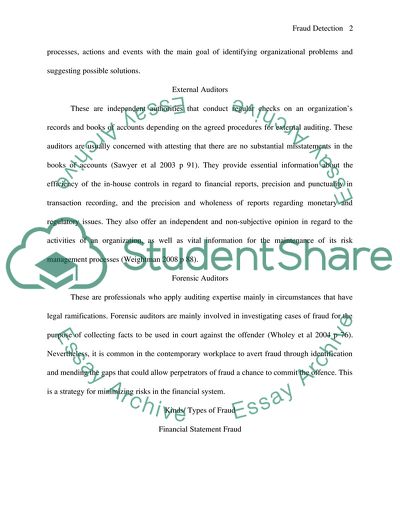Cite this document
(“The role of Internal, External and Forensic Auditors Essay”, n.d.)
Retrieved from https://studentshare.org/law/1557487-fraud-detection-the-role-of-internal-external-and-forensic-auditors
Retrieved from https://studentshare.org/law/1557487-fraud-detection-the-role-of-internal-external-and-forensic-auditors
(The Role of Internal, External and Forensic Auditors Essay)
https://studentshare.org/law/1557487-fraud-detection-the-role-of-internal-external-and-forensic-auditors.
https://studentshare.org/law/1557487-fraud-detection-the-role-of-internal-external-and-forensic-auditors.
“The Role of Internal, External and Forensic Auditors Essay”, n.d. https://studentshare.org/law/1557487-fraud-detection-the-role-of-internal-external-and-forensic-auditors.


